The finance department is like the pulse of a business. Organizations increasingly turn to technology to streamline their processes and boost operational efficiency.
One area garnering significant attention is Accounts Payable, where manual tasks and paper-based processes can impede productivity.
In this blog post, we delve into the transformative realm of Accounts Payable Automation Solutions, dissecting the features and benefits that propel financial operations into a new era of effectiveness.
Table of Contents
- The Current Landscape of Accounts Payable Processes
- The Pains of Manual Accounts Payable
- Impact on Operational Efficiency and Cost Management
- Understanding the Core Concepts of Accounts Payable Automation
- How Automation Solutions Can Alleviate Manual Burdens
- Gaining Transparency in Financial Operations
- Improving Accuracy and Reducing Errors
- Real-time Reporting for Informed Decision-Making
- Essential Features of Accounts Payable Automation Solutions
- The Future of Financial Automation
The Current Landscape of Accounts Payable Processes

As businesses navigate the complexities of financial management, accounts payable processes stand as a critical juncture where transactions meet accountability. The traditional accounts payable approach involves many manual tasks, including data entry, invoice processing, and approval workflows. This landscape, while functional, often leads to inefficiencies, errors, and a lack of real-time visibility into financial operations.
The Pains of Manual Accounts Payable

Manual accounts payable processes are synonymous with challenges that hinder operational efficiency and cost management. From time-consuming data entry tasks to the inherent risk of errors in manual calculations, organizations grapple with the limitations of outdated accounts payable methods. The inefficiencies in the manual handling of invoices, approvals, and payments strain resources and hinder the agility required for businesses to thrive in today’s fast-paced environment.
Impact on Operational Efficiency and Cost Management

The manual handling of Accounts Payable profoundly impacts operational efficiency and cost management. Cumbersome processes lead to delayed invoice approvals, late payments, and missed opportunities for early payment discounts. It affects relationships with suppliers and incurs additional costs in the form of late fees and strained vendor relationships. The time-intensive nature of manual Accounts Payable processes further diverts valuable resources from more strategic financial initiatives.
Understanding the Core Concepts of Accounts Payable Automation

Accounts Payable automation represents a paradigm shift in how businesses approach financial processes. At its core, Accounts Payable automation involves using technology to streamline and optimize the entire lifecycle of invoice processing. It encompasses everything from the receipt of invoices to approval workflows, payment processing, and comprehensive reporting.
How Automation Solutions Can Alleviate Manual Burdens

The adoption of Accounts Payable automation solutions brings forth a myriad of benefits. Businesses can redirect their focus to more strategic financial initiatives by automating routine and time-consuming tasks. This shift improves overall efficiency and ensures that resources are where they are most impactful. Automation eliminates the bottlenecks inherent in manual processes, enabling a more agile and responsive financial operation.
Gaining Transparency in Financial Operations

One of the critical advantages of Accounts Payable automation is the transparency it brings to financial operations. With automated workflows and real-time tracking, organizations gain unprecedented visibility into the status of invoices, approvals, and payments. This transparency enhances accountability and provides valuable insights for strategic decision-making.
Improving Accuracy and Reducing Errors

Automation solutions significantly reduce the risk of errors associated with manual data entry and calculations. By leveraging technology for these tasks, businesses can ensure accuracy in invoice processing and payment calculations. It minimizes the potential for costly mistakes and enhances the overall reliability of financial operations.
Real-time Reporting for Informed Decision-Making

The shift to Accounts Payable automation introduces real-time reporting and analytics capability. Organizations can access up-to-the-minute insights into their financial performance, enabling informed decision-making. This level of agility is crucial in a business landscape where the ability to adapt quickly to changing circumstances is a competitive advantage.
Essential Features of Accounts Payable Automation Solutions

Seamless Integration with Existing Accounting Systems
A robust AP automation solution seamlessly integrates with existing accounting systems, ensuring a smooth transition without disruptions to ongoing financial processes.
Customizable Approval Workflows
Customizable approval workflows are a cornerstone of Accounts Payable automation, allowing businesses to tailor processes to their needs, ensuring compliance and efficient approval routing.
Security Protocols for Sensitive Financial Data
Given the sensitivity of financial data, top-notch security protocols are a non-negotiable feature of any Accounts Payable automation solution. Encryption, authentication, and access controls safeguard sensitive information.
Selecting the Right Solution
Choosing the proper Accounts Payable automation solution is critical for organizations seeking to enhance their financial processes. Considerations should include the solution’s scalability, compatibility with existing systems, customization options, security features, and the vendor’s level of support. Evaluating these factors ensures that the selected solution aligns seamlessly with the unique needs and goals of the organization.
The Future of Financial Automation

In conclusion, the power of Accounts Payable automation solutions lies in their ability to revolutionize how businesses manage financial processes. As organizations increasingly recognize the drawbacks of manual AP methods, adopting automation is becoming not just a preference but a necessity for staying competitive.
The future of financial automation promises increased efficiency, enhanced accuracy, and unparalleled transparency in operations. By embracing Accounts Payable automation solutions, businesses position themselves at the forefront of a transformative shift redefining the financial management landscape.
